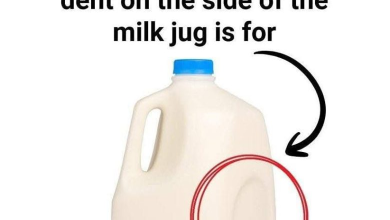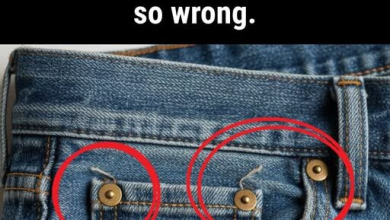Stranger Saves My 91-Year-Old Mom in a Blizzard After Her Family Left Her Behind

It was one of those nights that small towns whisper about—a Michigan blizzard so intense it swallowed the roads. In the midst of it, a stranger named Derek lifted my 91-year-old mother in his arms and carried her through the storm, saving her life when her own sons had failed to do so.
My mother, Ruth, is tiny—ninety pounds, four-foot-ten, living with dementia. Some days she’s clear and bright; others, she drifts into confusion. She has two sons: me, Michael, living in Florida, and my brother Tom, just twenty minutes away from her assisted living home in northern Michigan.
Eight years ago, I moved south. I told myself it was for work, for sunshine—but the truth was, I was exhausted. Exhausted by the late-night calls, the endless appointments, the slow heartbreak of watching someone fade. I convinced myself professional care would be better for her. That was the lie I told myself so I could sleep at night.
On January 17, the facility called Tom. Mom had fallen and needed X-rays. He said he was tied up in meetings. When they mentioned the $800 ambulance fee, he refused. Then he called me—to vent. I told him to handle it as he saw fit and hung up.
They arranged a budget-friendly transport van to take her to urgent care, only three miles away. The driver left her there, assuming someone would meet her.
No one came.
She waited in the clinic for six hours—cold, confused, in slippers and a thin sweater—hoping her sons would arrive. By 7 p.m., the clinic was closing. Staff called Tom. No answer. They called me. I ignored it, sitting in a Florida restaurant, pretending not to see the Michigan number.
That’s when Derek appeared.
A biker, covered in snow, stopping to check the weather before heading north. He saw my mother sitting alone, quietly crying. “My son’s coming,” she said. “Tommy promised.”
The receptionist, almost in tears, told him the truth: Ruth had been left behind, and they couldn’t keep her overnight. Outside, the temperature had fallen to 19 degrees, and the wind sliced sideways.
Derek asked for our phone numbers. He called Tom four times. Me twice. No one picked up.
So he made a choice.
He asked for the facility’s address—3.2 miles away—and said, “I’ll get her home.”
He draped his leather jacket over her, lifted her in his arms, and stepped into the storm.
The snow reached his knees. The wind felt like knives. But he kept walking. He chatted with her the whole way—about his children, his work, his bike—to keep her calm. She told him about her late husband, about the “good boys” she’d raised. Derek didn’t correct her. He just walked.
A police cruiser spotted them midway. The officer helped them in and drove the remaining distance.
When they arrived, staff were stunned. Derek was soaked, shivering, his beard crusted with ice. “You carried her?” the director asked. He nodded. “I couldn’t leave her there.”
They got my mother inside, warm and safe. A police report was filed. The director called me at 9 p.m. I almost ignored it again—but this time, I didn’t.
Her voice trembled as she recounted everything: the fall, the hours of waiting, the blizzard, the stranger who rescued her when her sons hadn’t.
I threw up. Then I called Tom and screamed. He screamed back. Neither of us was wrong about the other.
The next day, I flew to Michigan. My mother was alive—frostbitten fingers, a bruised hip, but alive. I asked for Derek’s number.
He answered on the second ring. I tried to thank him, but my words stuck. He interrupted me.
“You should be ashamed,” he said. “This woman carried you for nine months and raised you for eighteen years. And you didn’t answer the phone. Do better.” Then he hung up.
The following day, I drove to his house with flowers, a card, and a $5,000 check. He refused it. “Take care of your mom,” he said.
His wife came to the door. Calm, but firm. “My husband nearly froze carrying your mother. He couldn’t move for a day. But he would do it again. Because that’s who he is. He doesn’t leave people behind.”
The shame burned hotter than the winter storm.
Within a week, I relocated Mom to Florida. Paid the $80,000 penalty. Worth every cent. I visit her every day now. Tom and I don’t speak. When asked if I have a brother, I say yes—his name is Derek.
He stops by when passing through Florida. Mom lights up when she sees him, though she can’t recall why. “You look like my father,” she tells him. He smiles and replies, “I’ll take that as a compliment.”
Once, I asked him why he did it—why carry a stranger through a blizzard?
He looked at me as though the answer was obvious. “Because she needed help. Because she mattered. And because I couldn’t live with myself if I left her there.”
I still wrestle with guilt over my own failure.
But I’m trying.
Now, I take Mom out to lunch three times a week. We watch her favorite shows. I hold her hand when she’s scared. I answer every call. She never waits alone anymore.
Derek taught me the meaning of true decency. A tattooed, leather-clad biker—the kind of man I might have judged—walked through a storm to save a stranger. And I, her son, didn’t pick up the phone.
My mother didn’t deserve that night. But she deserved the man who showed up.
So here’s my confession—and my gratitude.
Derek, if you ever read this: thank you. You didn’t just carry my mother through a blizzard. You carried me out of the wreckage of my own failure.
You proved that honor isn’t about appearances—it’s about action.
And by that measure, you are a hero.
I will spend the rest of my life striving to be the son my mother thought I was—and the kind of man you already are.




